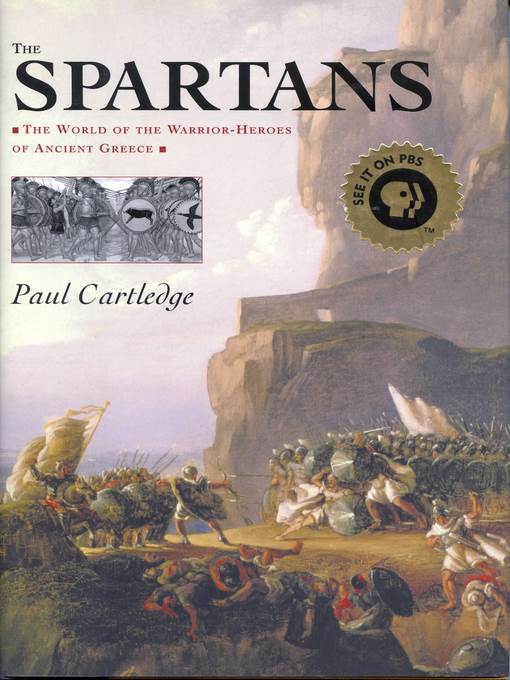
The Spartans
کتاب های مرتبط
- اطلاعات
- نقد و بررسی
- دیدگاه کاربران
نقد و بررسی

Starred review from April 14, 2003
Legendary for their ferocious combat skills, the Spartans built a warrior culture in ancient Greece unsurpassed for its courage and military prowess. Eminent historian Cartledge (Spartan Reflections) provides a remarkable chronicle of Sparta's rise and fall, from its likely origins around 1100 B.C. to the height of its fame and glory in the battle of Thermopylae in 480 B.C. and its fall in the fourth century B.C. The Spartans built their society through conquest and subjugation, ruling over their subject peoples with an iron hand and putting down revolts with devastating might. Between 490 and 479, Sparta joined Athens in fighting the Persians in three key wars—Thermopylae, Plataea and Mycale—that contributed to the demise of Persian power and the rise of Hellenistic power on the Mediterranean. Cartledge punctuates his absorbing tale with brief, engaging biographies of the city-state's kings from Lycurgus, the earliest Spartan leader, who brought constitutional law to the city, to Leonidas, who led the Spartans at Thermopylae. According to Cartledge, the Spartans' legacy to Western culture includes devotion to duty, discipline, the willingness to sacrifice individual life for the greater good of the community and the nobility of arms in a cause worth dying for. Cartledge's crystalline prose, his vivacious storytelling and his lucid historical insights combine here to provide a first-rate history of the Spartans, their significance to ancient Greece and their influence on our culture. It ties in to a PBS series to air this summer. 27 b&w illus., 3 maps. Agent, Lucas, Alexander, Whitley.

July 1, 2003
Given the preeminence of Athens, Sparta is frequently overlooked. But it did win the Peloponnesian War, and those studying slavery and colonization ignore it at their risk. Sparta itself limits what historians can say, for it is difficult to write about a culture that contained neither writers nor builders, thus acutely affecting the record left behind. Nonetheless, this effort by Cartledge (Greek history & classics, Cambridge; The Greeks: Crucible of Civilization) is both commendable and fascinating. In roughly chronological order, he reviews the major players, from the city-state's beginnings through Rome's domination. This includes the important pairs of hereditary kings descended from Heracles, making reliance on the Great Man theory of history unavoidable. Yet despite the scarcity of sources, Cartledge does pay strict attention to the social aspects of Spartan life (see also Sarah B. Pomeroy's Spartan Women); his book is a good overview of the people and the issues. Modern readers will also enjoy Cartledge's treatment of the Leonidas phenomenon and the development of a Spartan myth in the centuries since Thermopylae. Recommended for all collections.-Clay Williams, Hunter Coll. Lib., New York
Copyright 2003 Library Journal, LLC Used with permission.

May 15, 2003
To project civic-mindedness or combativeness, American towns and school teams have appropriated the name of Sparta--so who were the Spartans and why do we care? So asks Cartledge, a Cambridge University scholar whose engaging narrative tries to discern the authenticity of events and personalities known only through fragmentary written or archaeological evidence, which can be mythical, partisan, or propagandistic. Cartledge spans Sparta's entire existence but concentrates on the century from the Persian invasions to its collapse following its triumph over Athens in 404 B.C.E. Presenting Sparta's military and diplomatic policies, the author studs his account with lively sketches of Spartan leaders, above all Leonidas. As embodiments of Sparta's warrior caste at the Battle of Thermopylae (480 B.C.E.), Leonidas and his 300 hoplites have redounded down the millennia, most recently in the historical novel " Gates of Fire" by Steven Pressfield (1998), which will soon be made into a movie. In his panorama of the real Sparta, Cartledge cloaks his erudition with an ease and enthusiasm that will excite readers from page one.(Reprinted with permission of Booklist, copyright 2003, American Library Association.)

























دیدگاه کاربران